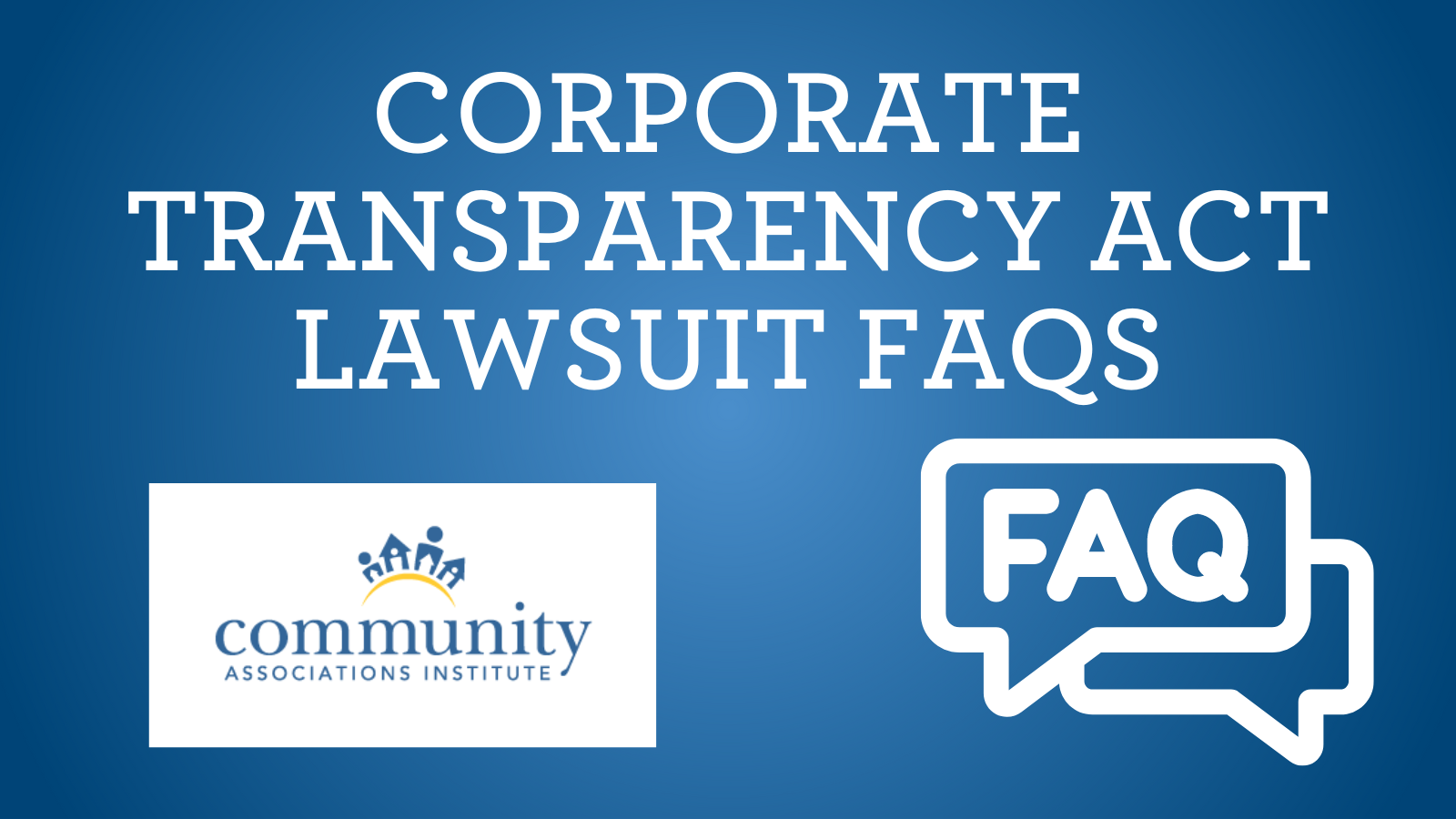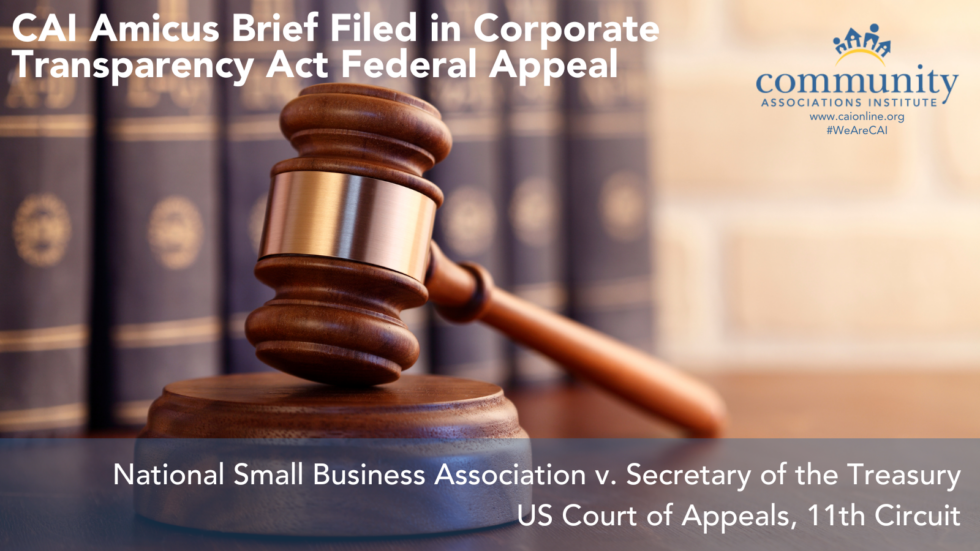
The Corporate Transparency Act (CTA) was signed into law Dec. 2020 and is now in effect for many community associations. This law will require community associations with fewer than 20 employees and less than $5 million in annual revenue to disclose beneficial owners’ information to the Department of Treasury’s Financial Crimes Enforcement Network (FinCEN).
While we support the goal of stopping money laundering and funding schemes for terrorist activity, this is not good public policy for community association boards of directors. CAI believes community associations were unintendedly caught up in this law which is intended for corporations laundering money for terrorist activity. Failure of a volunteer community association boards to comply—intentional or not—could result in up to $10,000 in fines and up to two years in prison.
CAI's Lawsuit:
 |
NOTE: Should community associations be prepared to file by Dec. 31 if CAI's lawsuit is not resolved or the law has not changed?Yes. Community associations should be prepared to comply with the act and file the required beneficial ownership information by Dec. 31 if the lawsuit is not resolved or the law has not been amended. While the CAI is actively pursuing legal action to seek an exemption, it is prudent for associations to prepare to comply to avoid potential penalties and ensure they meet all legal requirements.
|
We learned from the National Small Business Association (NSBA) lawsuit that “association standing” protects all members of the organization in the lawsuit. If CAI’s lawsuit is successful in exemption community associations from the corporate transparency act, it is very possible the exemption will only apply to community associations that are members of CAI. Join today!
Help CAI fight the Corporate Transparency Act!
|
| On Friday, March 1, a federal court ruled the Corporate Transparency Act (CTA) unconstitutional, and the federal government appealed the decision on Monday, March 11. Meanwhile, the Financial Crimes Enforcement Network (FinCEN) has provided notice that as a result of this opinion, the government is not currently enforcing the Corporate Transparency Act against the plaintiffs in that action: Isaac Winkles, reporting companies for which Isaac Winkles is the beneficial owner or applicant, the National Small Business Association, and members of the National Small Business Association (as of March 1, 2024). Those individuals and entities are not required to report beneficial ownership information to FinCEN at this time. CAI wanted to share this news with you immediately and we will provide additional details as they become available. On May 20, CAI filed an amicus brief in the United States Court of Appeals for the 11th Circuit in National Small Business United d/b/the National Small Business Association, et al., v. Janet Yellen, in her official capacity as Secretary of the Treasury, et al. Read CAI's Amicus Brief

|
OTHER CURRENT CTA LAWSUITS:
National Small Business Association (NSBA)- National Small Business Association et al v. Yellen 5:22-cv-1448-LCB
Small Business Association of Michigan (SBAM)- Small Business Association of Michigan et al v. Yellen et al 1:2024cv00314
National Federation of Independent Business (NFIB)/Wyoming dairy/the Mississippi Libertarian Party and two small businesses- Texas Top Cop Shop et al v. Garland et al 4:24-CV-00478
William Boyle (Individual)- William Boyle v. Yellen 2:24-cv-00081
Black Economic Council of Massachusetts (BECMA), the African Community Economic Development of New England (ACEDONE) and three business owners in Massachusetts- Black Economic Council of Massachusetts et al v. Yellen et al 1:24-cv-11411
Utah business owner Phillip Taylor and the nonprofits The People Restored, Ranchers Cattlemen Action Legal Fund United Stockgrowers of America, and Utah OSR Land Cooperative- Taylor v. Yellen, No. 2:24-cv-00527
Gerald Earl Cummings, II, Lindsay Berschauer, Tayler Hayward, Lisa Ledson, Katerina Eyre, Michael Firestone and Thomas Reilly- Firestone et al v. Yellen et al 3:2024cv01034
Robert J. Gargasz Co., L.P.A. and Robert J. Gargasz- Robert J. Gargasz Co., L.P.A. et al v. Yellen 1:2023cv02468
For additional questions on the Corporate Transparency Act please email CAI's Government & Public Affairs team at government@caionline.org; or
Contact:
Dawn M Bauman, CAE
CAI's Chief Strategy Officer
703-970-9224 or dbauman@caionlin.org
Phoebe Neseth, Esq.
CAI's Sr. Director of Government and Public Affairs
703-970-9256 or pneseth@caionline.org
Resources
www.caionline.org/CTA
